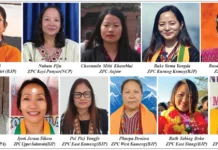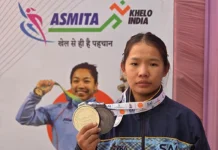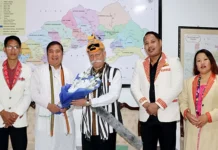TEZU, 5 Aug: Educators and administrative officers here in Lohit district emphasized the need for improving students’ performance in science and mathematics, as well as improving the district’s literacy rate.
On Tuesday, a motivational and counselling programme for volunteers and science and maths teachers under the New India Literacy Programme (NILP) was organized here with the objective of strengthening adult literacy and students’ academic performance, particularly in science and mathematics.
Tezo SDO Sotaillum Bellai, who led the session, encouraged the teachers to not only fulfil their formal teaching duties but also actively engage in voluntary literacy initiatives under the NILP.
He suggested that all teachers who are voluntarily participating in NILP should be recognized with certificates, and that exceptional performers should be rewarded. He also urged the teachers to be resourceful and contextually relevant in their approach.
Lohit DDSE Tumngam Nyodu emphasized the need for improving students’ performance in science and mathematics. She encouraged NILP volunteers to work towards pushing Lohit’s literacy rate above the national average of 73 percent.
She also recommended implementation of three periodic tests, with the best two marks to be considered for final evaluation. She expressed confidence that with these efforts the district could achieve a pass percentage of more than 80 in Class 10 and a full 100 in Class 12.
TDO Asmi Mega spoke on the importance of adult education, pointing out that adults who have missed formal education often struggle with modern processes, which in turn affects their children’s academic growth.
She urged teachers not to discourage students from asking questions, regardless of how simple those questions may seem. Instead, she called for a classroom culture that welcomes curiosity, ensuring that quality education reaches every learner.
To make learning more accessible and engaging, she encouraged teachers to use simpler language and interactive teaching methods that cater to diverse learning levels. (DIPRO)




